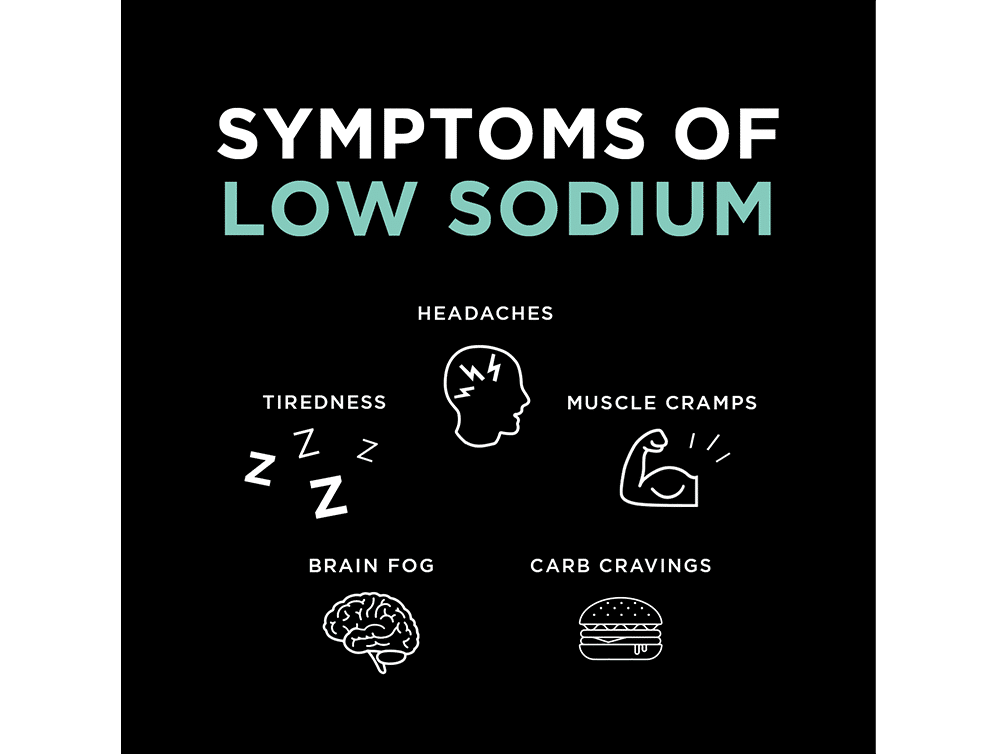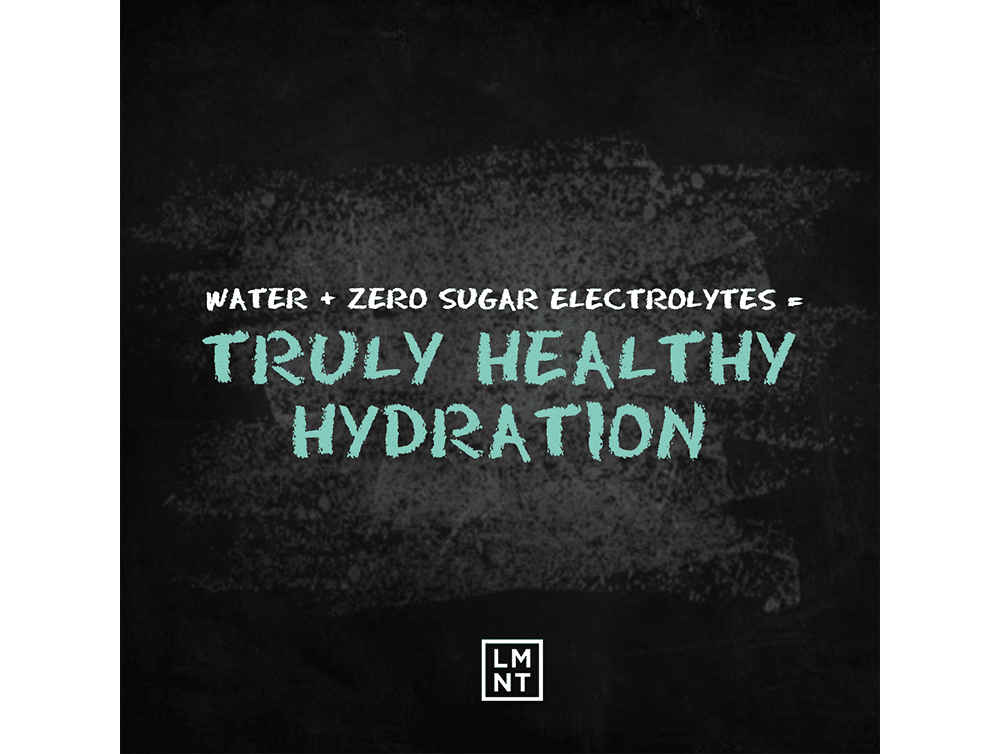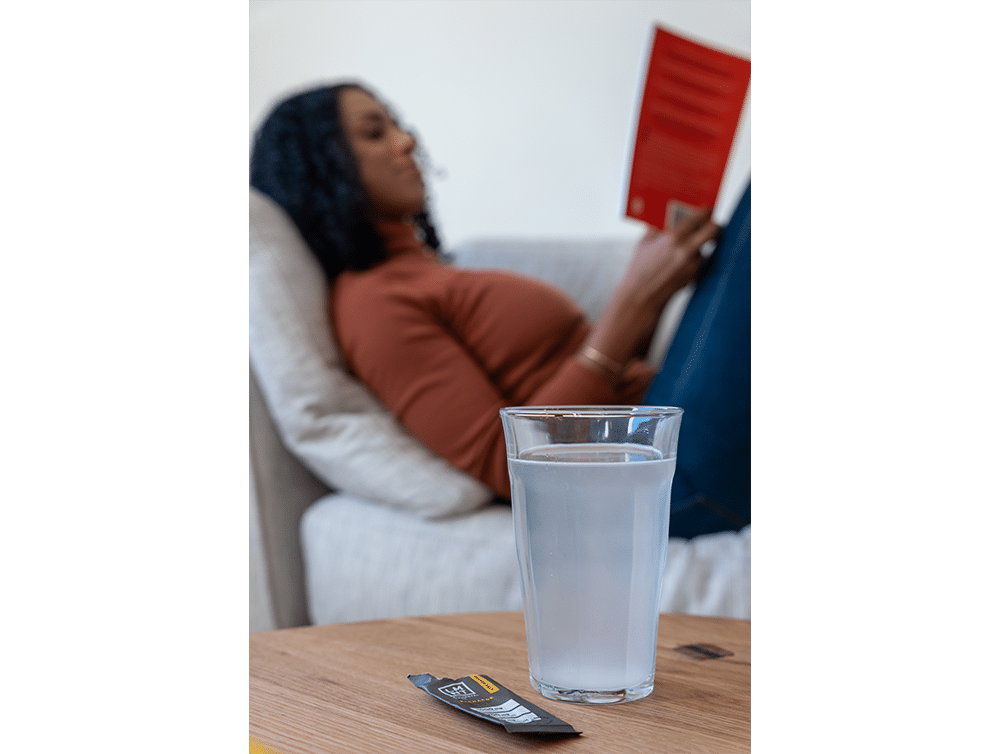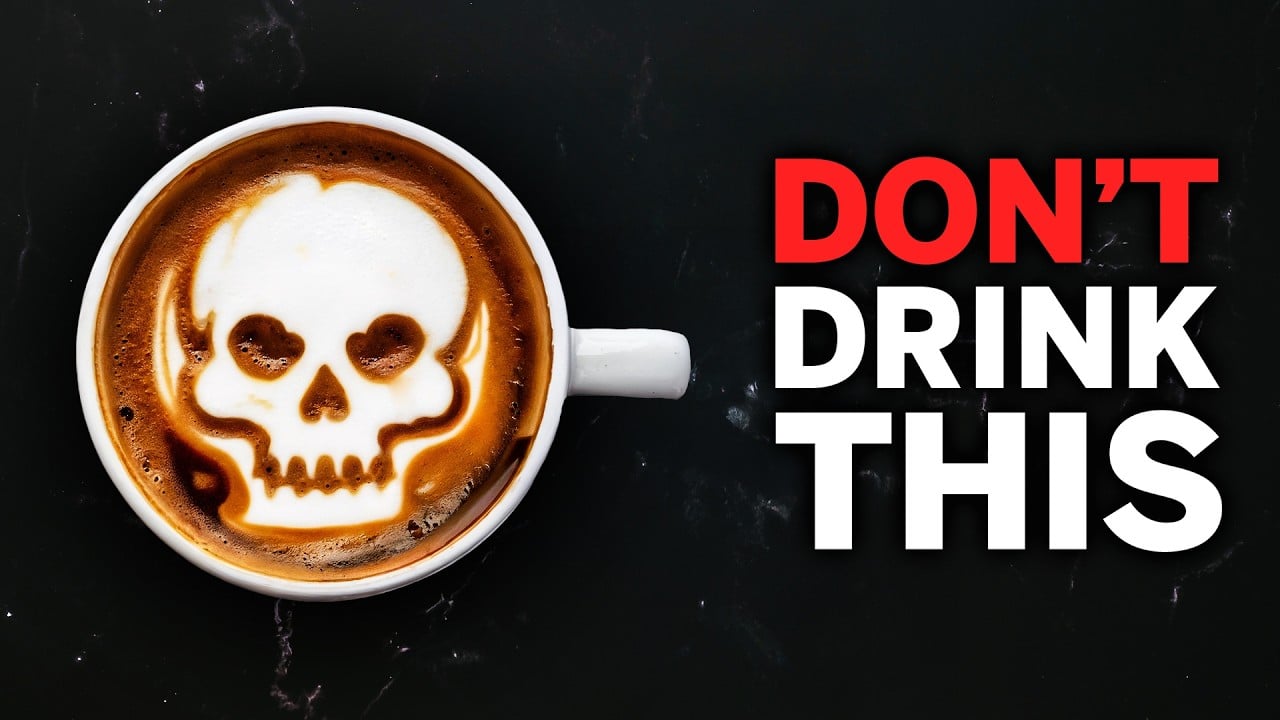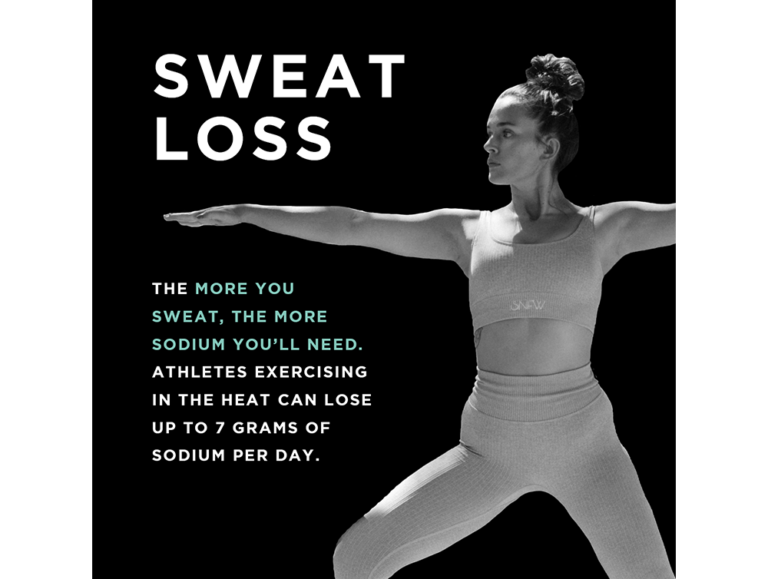
You get a good night’s sleep; you feel healthy, you move through your day getting things done, and then BAM – you’re exhausted. Sound familiar?
This happens to me all the time.
What is it that comes in and hijacks your energy out of nowhere? You may chalk it up to stress or a hectic schedule, but in my experience, it’s almost always dehydration.
That’s right, your body is craving more fluids, and it signals its needs by slowing down your energy resources.
So what is it about water that gives us a boost? Well, it’s not just water alone, but the essential minerals that control your body fluids that really get the spark plug going… I’m talking about electrolytes. Let’s dig into this a bit more.
How Dehydration Drains Your Energy
Water alone is crucial for life, but to keep the fluids in your body stable and active, you need the help of some charged minerals – specifically, sodium, potassium, magnesium, calcium, chloride, bicarbonate, and phosphate.
These minerals, also known as electrolytes, are responsible for a wide range of functions, quite literally acting as the electricity that lights up your body. You can flood your body with water, but you’re still dehydrated if you don’t have enough electrolytes in the mix.
Just a handful of the jobs that electrolytes are responsible for include:
- Nerve transmission
- Fluid balance
- Blood pressure
- Muscle contraction
- Blood sugar stability
- And more
While all of the above factors can impact your energy levels, electrolytes also play a direct role in the activity and synthesis of ATP – the energy currency of your cells. Put simply, the more ATP you produce, the more energy you have[1].
Therefore, when you’re low on electrolytes, your ability to produce cellular energy becomes significantly compromised.
Of the various electrolytes, magnesium, potassium, and sodium are the most crucial for ATP synthesis[2][3].
Unfortunately, in the US, we’re chronically deficient in magnesium and potassium, and sodium intake varies greatly depending on your diet[4][5]. Could this be why we’re all so tired these days?
In addition to their roles in ATP synthesis, these three electrolytes also play indirect roles in energy production and metabolism.
For example, magnesium assists in muscle contraction and helps to promote restful sleep, while sodium and potassium work together to conduct nerve impulses, and potassium assists with glucose regulation[6][7][8][9].
And these are really just the highlights; just as your car runs on gasoline, your body runs on electrolytes.
Three Common Causes of Electrolyte Imbalance
Now that you’ve wrapped your head around why hydration requires more than just water, let’s talk about some of the reasons that so many of us are walking around with low electrolytes and low energy.
#1 You Sweat More Than You Drink
This one may sound obvious, but it’s very easy for us to underestimate how much water we lose each day. You may feel thirsty during your workout, but you also have to keep the hydration going once your exercise is complete. Drinking an extra cup of water while you exercise likely won’t make up for the amount of water you lose during your workout.
And if you workout in the heat, you need to be extra cautious; research shows you could lose up to 3 to 4 liters per hour[10].
The same goes for those among you that like to hit the sauna. I’m a massive fan of saunas, but I make sure to hydrate before, during, and in the hours after my sauna session.
#2 You’re On a Low-Carb Diet
Low-carb diets can be an excellent way to lose weight, maintain energy, and support several other aspects of health. The one downside, however, is that reducing your carb intake can throw off your electrolytes.
When carbs are low, it results in reduced insulin levels, which increases your loss of sodium and potassium[11]. This is particularly true for people on ketogenic diets, which is why the term “keto-flu” is often referenced as your body adjusts to lower carbs and the subsequent loss of electrolytes.
Low-carb diets also tend to be low in potassium-rich foods like bananas, potatoes, squash, and beans.
#3 You’re Staying “Hydrated” with Mineral Depleted Water
This one is more common than you might think, and it’s a real problem among the health-conscious crowd.
Yes, it is vitally important to drink enough water each day. And I commend those of you lugging around gallon-sized water bottles with reminders to sip every hour – but you could be drowning out your electrolytes.
As mentioned, water alone doesn’t equal hydration; it’s the combination of water with a sufficient level of electrolytes that fuels your cells with the electrical energy they need for optimal function.
Therefore, when you spend all day drinking plain old H20, you’re actually depleting your electrolyte stores but diluting the good stuff. This is where a high-quality electrolyte supplement comes into the picture.
Under normal circumstances, if you’re not losing a lot of electrolytes each day via sweat or dietary factors, you may not need to add electrolytes to your water sources. Unfortunately, due to the state of our food supply, which is woefully lacking minerals, and the fact that many humans today are getting more active so they can live long, healthy lives, we’re losing electrolytes left and right.
The solution? Add some electrolytes to your water. Simple.
Electrolyte Powders: They’re Not All Created Equal
I’ve spent a considerable amount of time trying out different electrolyte powders because, frankly, there are so many on the market today. While it may seem like a pretty straightforward supplement, electrolyte powders come in all shapes and forms. They vary depending on which electrolytes they contain, the amount of each mineral per serving, the flavor profile, the potential additives, and of course, the quality.
What do I mean by quality?
Well, you have some electrolyte powders that come loaded with sugar, artificial flavors, artificial colors, and all kinds of fillers. Then you have the pure powders; their main ingredients are minerals plus some natural flavors to add to your enjoyment.
Obviously, I prefer the latter, but even within this category, there are potential pitfalls.
For instance, some of the clean electrolyte powders only contain a scant amount of the electrolytes we actually need in abundance (sodium, potassium, and magnesium). While others contain high levels of one or two of these minerals without the proper balance of all three.
At the end of the day, there’s only one electrolyte powder out there that I’ve found to check off all my boxes, and that’s LMNT.
LMNT contains a science-backed electrolyte ratio of the big three, magnesium, potassium, and sodium, and is free of all the additives and artificial nonsense you’ll find in most electrolyte powders. The best part? It tastes great.
If you’re interested in giving LMNT a shot, they’ve agreed to offer a special deal for my community; a free sample pack of LMNT (including all eight flavors) with any order. This gives you a chance to not only try out the product but also sample each flavor to see which one you like the best.
And for those of you who are already LMNT fans, don’t worry – you still get the deal by using this link to order.
Takeaway
Dehydration can sneak up on you, regardless of how much water you’re drinking.
Our food supply today is already low in minerals, but add to that the popularity of health-promoting practices that drain our electrolytes, like low-carb dieting, sauna sessions, and intense workouts, and we’re basically leaking electrolytes.
If you want to get ahead of the imminent crash that comes when your electrolytes are low, don’t just fill up that water bottle with H20; make sure you get a nice blend of electrolytes in there as well.
References
- Shrimanker, Isha, and Sandeep Bhattarai. “Electrolytes.” (2019).
- Apell, Hans-Ju?rgen, Tanja Hitzler, and Grischa Schreiber. “Modulation of the Na, K-ATPase by magnesium ions.” Biochemistry 56.7 (2017): 1005-1016.
- Flatman, Peter W., and Virgilio L. Lew. “The magnesium dependence of sodium?pump?mediated sodium—potassium and sodium—sodium exchange in intact human red cells.” The Journal of physiology 315.1 (1981): 421-446.
- DiNicolantonio, James J., James H. O’Keefe, and William Wilson. “Subclinical magnesium deficiency: a principal driver of cardiovascular disease and a public health crisis.” Open heart 5.1 (2018): e000668.
- Sun, Hongbing, and Connie M. Weaver. “Rise in potassium deficiency in the us population linked to agriculture practices and dietary potassium deficits.” Journal of Agricultural and Food Chemistry 68.40 (2020): 11121-11127.
- Potter, J. D., S. P. Robertson, and J. D. Johnson. “Magnesium and the regulation of muscle contraction.” Federation proceedings. Vol. 40. No. 12. 1981.
- Abbasi, Behnood, et al. “The effect of magnesium supplementation on primary insomnia in elderly: A double-blind placebo-controlled clinical trial.” Journal of research in medical sciences: the official journal of Isfahan University of Medical Sciences 17.12 (2012): 1161.
- https://ods.od.nih.gov/factsheets/Potassium-HealthProfessional/
- https://biobeat.nigms.nih.gov/2020/11/pass-the-salt-sodiums-role-in-nerve-signaling-and-stress-on-blood-vessels/#:~:text=Sodium%20plays%20a%20vital%20role,tunnels%20in%20our%20cell%20membranes
- Marriott, Bernadette M. “Water requirements during exercise in the heat.” Nutritional Needs in Hot Environments: Applications for Military Personnel in Field Operations. National Academies Press (US), 1993.
- Harvey, Cliff J. D. C., Grant M. Schofield, and Micalla Williden. “The use of nutritional supplements to induce ketosis and reduce symptoms associated with keto-induction: a narrative review.” PeerJ 6 (2018): e4488.
